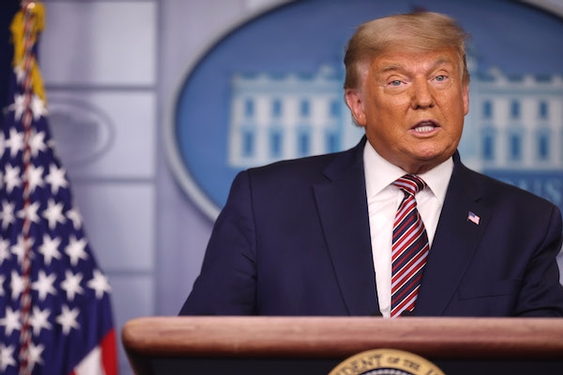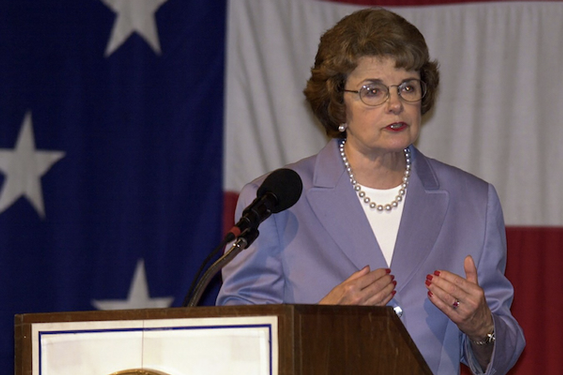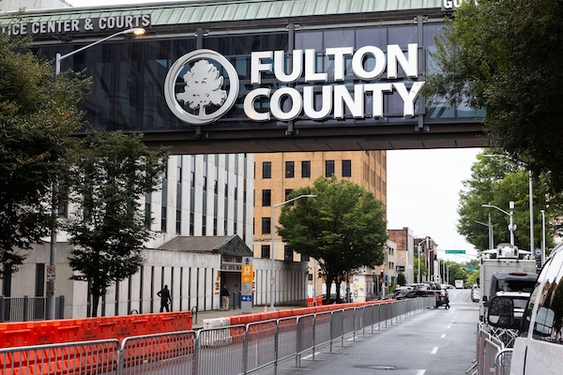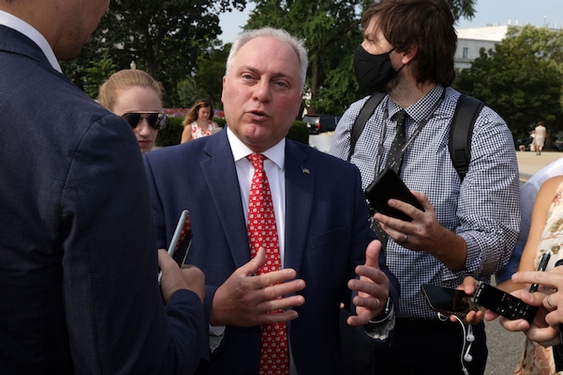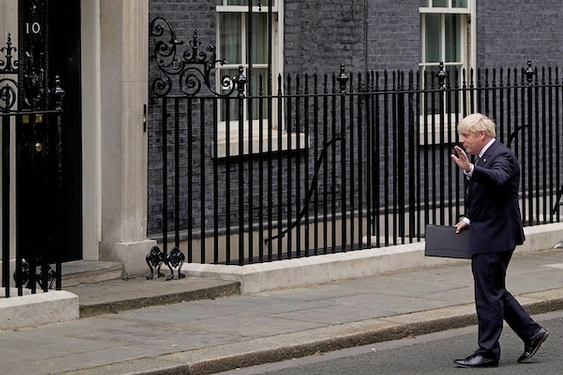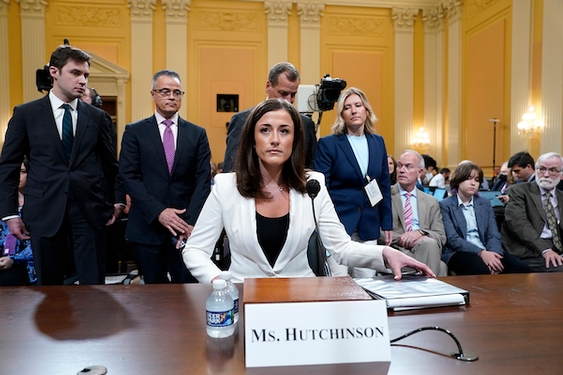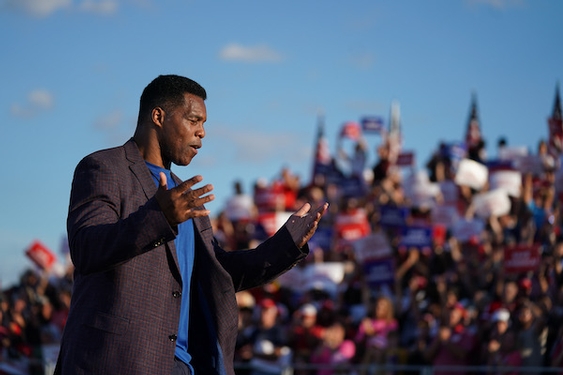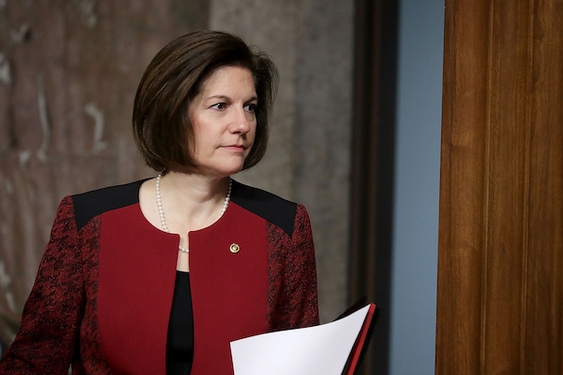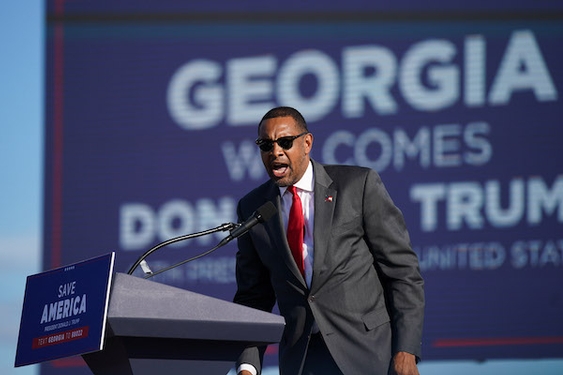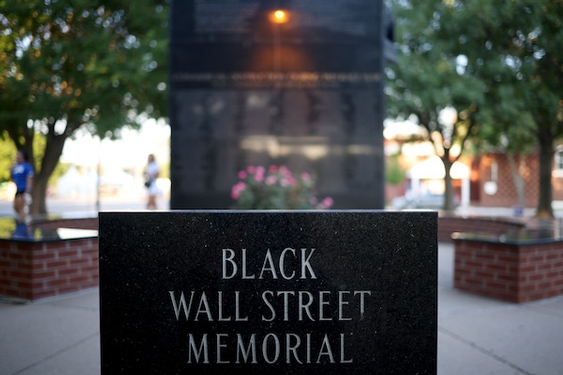Veteran Republican attorneys who fought George W. Bush's successful legal battle for the presidency in 2000 are steering clear of President Donald Trump's court fights, unimpressed by a strategy they say is quixotic and undisciplined.
The Trump campaign is taking their election battle to court on multiple fronts, filing lawsuits to stop ballot counting in Michigan and Pennsylvania, challenging vote-processing procedures in Georgia and Nevada, and calling for a recount in Wisconsin — all while encouraging a continued, uninterrupted vote count in Arizona.
That aggressive, if disconnected strategy comes as the president claims without evidence that mail-in ballots eating away at his chances of victory are illegitimate.
But as the Trump campaign mounts a slew of lawsuits, the major legal minds and firms that fueled Bush's victory in 2000 are staying on the sidelines — or even mocking Trump's efforts from afar.
The outcome of the presidential election in 2000 rested on the results in a single state, Florida, where Bush and the Democratic nominee, former Vice President Al Gore, were separated by under 2,000 votes, prompting an automatic recount. A defect in some ballots, known as hanging chads, created further conflict over the state's ballots.
"It was entirely different from now, when there basically is no problem — and nobody looking at it legitimately, including a lot of Republicans, thinks there is a problem," said Barry Richard, who was lead counsel in the courtroom in Florida for Bush in the 2000 case. "There's no problem that's a defect of the ballots, or that's any kind of fraud. It's kind of a manufactured issue."
Benjamin Ginsberg, national counsel for the Bush campaign in 2000 and 2004, said Trump's legal strategy has been an "unusual" and "remarkably innovative" effort to litigate the election results.
And Don McGahn, who was appointed by Bush to the Federal Election Commission in 2008 and later served as White House counsel in the Trump administration, quipped Wednesday that "you need a legal violation to go to court."
"These are desperation moves by a person who sees litigation as just another tool of doing business," Richard said. "I don't think any of this litigation is going to go anywhere."
Several major firms that have traditionally worked with Republican candidates have been involved in the first phase of Trump's lawsuits, including attorneys with firms such as Jones Day, Holtzman Vogel, and Wiley Rein, among others.
But several of the most prominent Republican election lawyers have stayed out of it.
"A lot of them often don't want to have Trump as a client because of the way he talks — the way he creates new evidence every day that they might find inconvenient when they've got to argue before a judge. That's not, from how I remember, how Bush acted in Bush v. Gore," said Walter Olson, senior fellow at the Cato Institute's Center for Constitutional Studies.
Democratic lawyers are also dismissing the president's legal strategy.
"It almost looks like just throwing whatever you can against the wall and seeing what sticks," said Stephen Zack, who represented former Vice President Gore in the Bush v. Gore case. "Judges are not oblivious to what is going on in other courtrooms and other pleadings around the country. So I think at the very least there should be some consistency."
"The most important thing that trial lawyers acknowledge is having credibility before the court," Zack added.
In a statement to McClatchy on Thursday, Mandi Merritt, national press secretary for the Republican National Committee, said that the president's legal arguments are clear and consistent — and that his legal team is up to the task.
"We are focused on protecting the integrity of the vote and ensuring all legally cast ballots are counted," Merritt said. "These suits are about ensuring legally guaranteed transparency and access to observe the counting process so that both sides can be confident of the results.
"We have a top-notch legal team, thousands of volunteer lawyers assembled, and are fully focused on upholding the letter of the law," Merritt added.
The president's team has filed multiple lawsuits in Pennsylvania alone — a state he must win to retain any chance of reelection — challenging the legitimacy of mail-in votes received after Election Day, despite twice being rejected on the issue by the U.S. Supreme Court.
They have also filed a suit claiming state election officials have failed to allow Republican observers to oversee the vote count from an adequate distance.
Bob Bauer, a campaign lawyer for the Democratic nominee, former Vice President Joe Biden, told reporters Thursday that Trump's lawsuits were "doomed to fail" and were designed "to create an opportunity for them to message falsely what is happening in the election process."
The lawsuits across five states — Pennsylvania, Michigan, Wisconsin, Nevada and Georgia — have all come as the president's prospects of victory in those jurisdictions began slipping away.
"I follow a lot of lawyers, and I haven't seen any of them that seem to be confident that any of the Trump camp's legal theories are simultaneously meritorious and big enough to make a difference," said Olson of the Cato Institute. "Unless we see some tide of late-arriving ballots in much larger numbers than we've seen so far, you've got an interesting principle to argue about that's not going to change the outcome."
___
(c)2020 McClatchy Washington Bureau
Visit the McClatchy Washington Bureau at www.mcclatchydc.com
Distributed by Tribune Content Agency, LLC.


